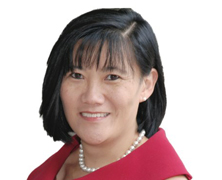A mentor, by definition, is a trusted counselor, tutor or coach; in reality, a mentor is anyone you can learn from. While the advice of an executive level mentor or sponsor is invaluable, I’ve found the wisdom of trusted colleagues to be a critical complement to my formal mentoring relationships. It’s important to build peer-to-peer networks and cultivate an openness to learning from those around you, regardless of their level in the organization. I’ve found that sometimes the people who can offer the most practical advice, or will provide the most honest feedback, are those who are currently facing the same challenges on a day-to-day basis.
I know the conventional wisdom is that mentors and protégées should have a lot in common; however, some of my most productive matches began as mismatches. One of the greatest gifts a mentor can give is clearer understanding of how you are perceived by others, both the positives and negatives. It’s been my experience that someone who challenges my thinking, and whose strengths and perspective are different than mine, can bring those qualities into sharper focus. Above all, it’s important that feedback is honest, even when it’s difficult to hear.
In return, you need to be just as honest with your mentors. The more contexts you can provide them, the more insightful their advice is likely to be.
In short, it’s important to know what you want and to seek out constructive feedback from multiple sources. A mentoring relationship is a career investment, and it makes sense to diversify your portfolio of mentors. More often than not, a theme will begin to emerge. No matter how good you are there is always room for improvement. It’s restrictive to think that you’re either a mentor or a protégée. Everyone needs a mentor, even senior managers.
My way of re-paying the mentors who have been so generous with me is to model the behavior they taught me. When one of Chubb’s most senior executives retired last year, among her parting advice to other women managers was to “find a mentor, be a mentor.” Her advice confirmed what I’ve already learned: the experience gained on both ends of that equation is transforming.







